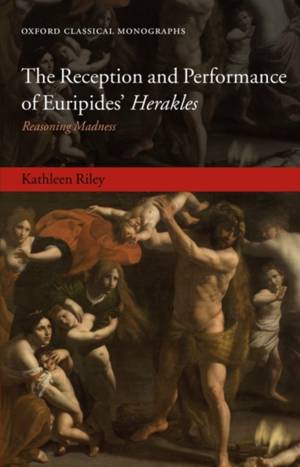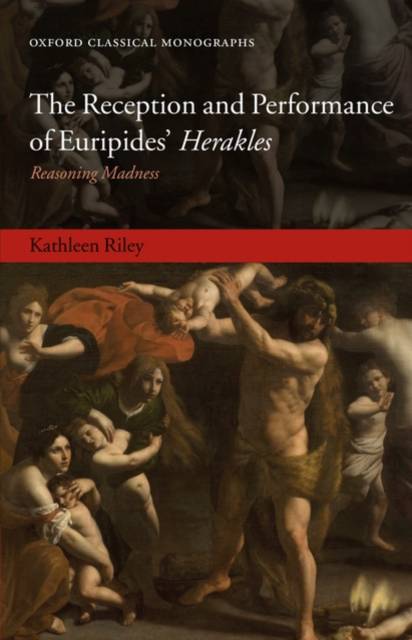
- Afhalen na 1 uur in een winkel met voorraad
- Gratis thuislevering in België vanaf € 30
- Ruim aanbod met 7 miljoen producten
- Afhalen na 1 uur in een winkel met voorraad
- Gratis thuislevering in België vanaf € 30
- Ruim aanbod met 7 miljoen producten
Zoeken
€ 265,95
+ 531 punten
Omschrijving
Euripides' Herakles, which tells the story of the hero's sudden descent into filicidal madness, is one of the least familiar and least performed plays in the Greek tragic canon. Kathleen Riley explores its reception and performance history from the fifth century BC to AD 2006. Her focus is upon changing ideas of Heraklean madness, its causes, its consequences, and its therapy. Writers subsequent to Euripides have tried to 'reason' or make sense of the madness, often in accordance with contemporary thinking on mental illness. She concurrently explores how these attempts have, in the process, necessarily entailed redefining Herakles' heroism. Riley demonstrates that, in spite of its relatively infrequent staging, the Herakles has always surfaced in historically charged circumstances - Nero's Rome, Shakespeare's England, Freud's Vienna, Cold-War and post-9/11 America - and has had an undeniable impact on the history of ideas. As an analysis of heroism in crisis, a tragedy about the greatest of heroes facing an abyss of despair but ultimately finding redemption through human love and friendship, the play resonates powerfully with individuals and communities at historical and ethical crossroads.
Specificaties
Betrokkenen
- Auteur(s):
- Uitgeverij:
Inhoud
- Aantal bladzijden:
- 410
- Taal:
- Engels
- Reeks:
Eigenschappen
- Productcode (EAN):
- 9780199534487
- Verschijningsdatum:
- 15/08/2008
- Uitvoering:
- Hardcover
- Formaat:
- Genaaid
- Afmetingen:
- 140 mm x 216 mm
- Gewicht:
- 671 g

Alleen bij Standaard Boekhandel
+ 531 punten op je klantenkaart van Standaard Boekhandel
Beoordelingen
We publiceren alleen reviews die voldoen aan de voorwaarden voor reviews. Bekijk onze voorwaarden voor reviews.











